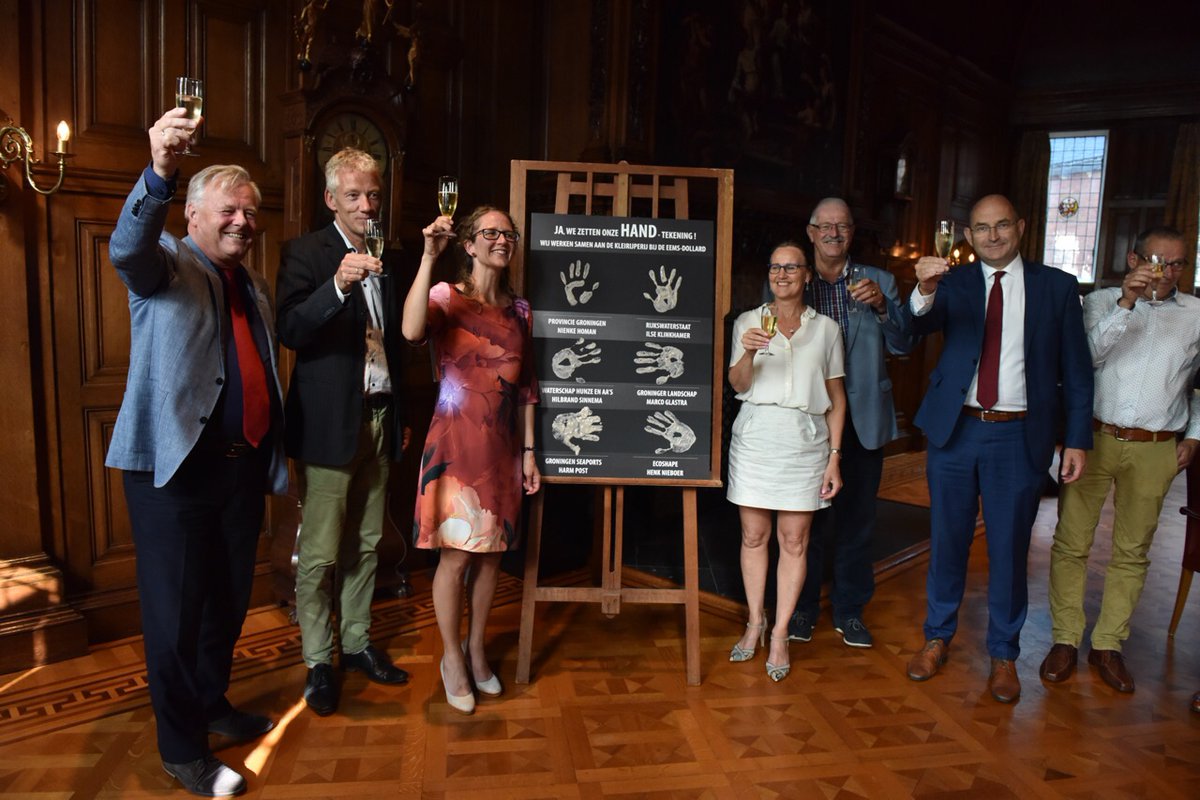A clay ripening pilot project is due to begin on the banks of the Eems Dollard in The Netherlands to investigate how sediment can be converted into clay soil. It is being organised by knowledge consortium EcoShape, Rijkswaterstaat, the provincial authority of Groningen, Groningen Seaports, the Hunze and Aa’s water authority and nature conservation organisation Het Groninger Landschap. EcoShape is responsible for the operational side. The project is being co-financed by the Wadden Fund.
There is too much sediment in the Eems Dollard area. That affects water quality adversely and reduces biodiversity. In addition, clay soil is needed in the area to strengthen dikes and to raise farmland. Collecting sediment from the Eems Dollard and converting it into clay soil creates a win-win situation: the water quality improves and there is more clay soil for reinforcing dikes and raising farmland.
‘We expect to take the first sediment to the clay ripening location in early 2018’, says Erik van Eekelen, programme manager at EcoShape. ‘The first step will be to set up and fill two sediment depots. One depot is for dredged material from the Havenkanaal, the canal leading to the port of Delfzijl. The other deposit is for sediment from the Breebaart polder near Termunten. The sediment is gradually transformed into clay soil in the clay ripening site by means of processes such as dewatering, desalination and oxidation. The clay ripening site includes several sections that allow us to test different ripening approaches.’
The Hunze and Aa’s water authority will be using 70,000 m3 of ripened clay soil to strengthen a one-kilometre section of dike in the ‘Broad Green Dike’ pilot project. This is a dike with a shallow slope covered by a relatively thick layer of clay and grass. If the Clay Ripening pilot project is successful, the idea is to strengthen the remaining section of the dike on the banks of the Dollard (about 11.5 kilometres). In addition, the ripened material can also be used to raise farmland and possibly as a raw material for the brick industry.
For EcoShape, the clay ripening project is a nice extension of a larger research effort looking at useful applications for sediment – the ‘Living Lab for Mud’ – which includes a range of projects from EcoShape. Erik van Eekelen: ‘In the Marconi project near Delfzijl and the Mud Motor near Harlingen, we are looking at how we can create salt marshes and allow them to grow using sediment. We are also involved in research in Indonesia, where we aim to restore mangrove forests creating fertile soil where mangroves can grow back. The Clay Ripening pilot project will teach us more about how we can apply excess sediment usefully to strengthen dikes. The knowledge from the Living Lab can be used elsewhere to tackle the sediment problem’.

In the project, the EcoShape partners Arcadis, Deltares, Van Oord, Boskalis, Royal IHC, Witteveen+Bos, HKV Lijn in Water, Royal Haskoning DHV en Wageningen Marine Research work together.
